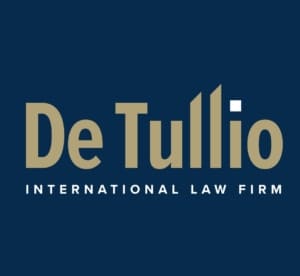Elective Residence Visa for Italy
An Elective Residence Visa allows non-EU citizens to reside in Italy
You should submit your application for an Elective Residence Visa (ERV) to the Italian embassy or consulate in your home country. For example, U.S. citizens can apply to the Italian consulates in New York, Miami, San Francisco. Canadians should apply to the Italian consulates in Toronto or Montreal.
The main requirement for obtaining an ERV is that the applicants must be able to support themselves autonomously in Italy. This must through an income unrelated to employment. Your income must be sufficient to exclude recourse to the Italian welfare system.
Get Your FREE Guide to Buying Property in Italy
Our PDF guide covers every aspect of the buying process so you're ready to purchase with confidence
Download nowApplicants for an Italian ERV must be able to provide documented guarantees
According to Italian law, ERV applicants should meet two essential elements. Firstly, they must have somewhere to live in Italy. This can either be a property they own, or a secured tenancy with a contract.
Secondly, applicants must have an income stream. This should be approximately Euro 31,000 per annum. This income must continue in to the future – for the period of stay in Italy.
Verifying that an ERV applicant has somewhere to live is fairly straightforward. However, the assessment regarding adequate finances implies a so-called discretionary evaluation by the consulate.
By law, this assessment cannot be arbitrary. In other words, the applicant must be able to see a logical explanation behind the decision-making process.
The law sets out various principles which the consulate should take into consideration when deciding whether or not to grant an ERV.
In particular, the available financial resources should be “ample”, “autonomous” and “stable”, thus the applicant should be able to sustain himself/herself without working in Italy.
The above means that financial resources should be fully accessible to the applicant. And, that funds should not be subject to unexpected, sudden fluctuations. The consulate must be able to make a reasonable assumption that an applicant’s financial resources will also exist into the future.
The applicant’s financial resources should originate from pensions, life annuities, ownership of real estate, ownership of stable economic-commercial activities or other sources of income. Income cannot however be from employment.
In the absence of any logical, valid and concrete reasons, so long as an applicant for an ERV meets the above requirements, the consulate cannot refuse to grant an ERV.
Finally …
Do you think your ERV application was wrongly rejected or do you need help with an ERV application?
The evaluation of the elements for an ERV application by the consulate is discretionary. However, as previously mentioned, it cannot be arbitrary.
Should you need further information concerning an elective residence visa or preparing your application or, if you wish to appeal the denial of an ERV, please contact us.
You may also like to read about what to do if your elective residence visa application is refused. We also have a series of info videos that you may like to watch.

 Should you need further information concerning an elective residency visa, please feel free to contact De Tullio Law Firm at the following email address
Should you need further information concerning an elective residency visa, please feel free to contact De Tullio Law Firm at the following email address 